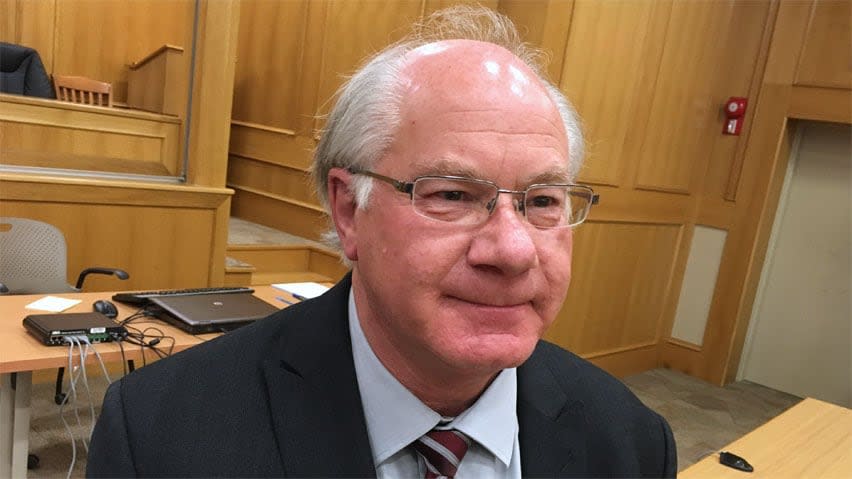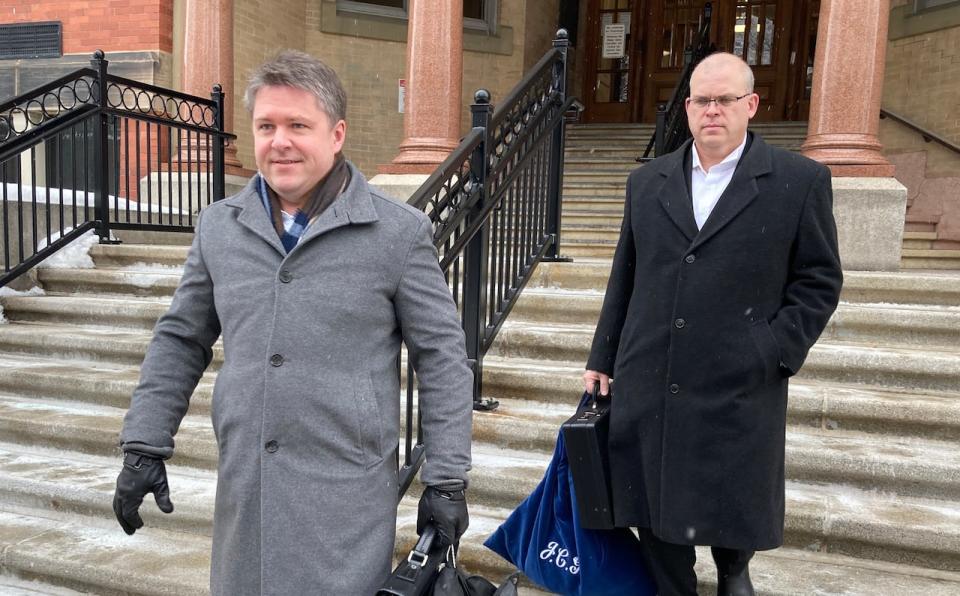Province's top court sets out 'tight timeline' for child protection case

The New Brunswick Court of Appeal says it wants to move quickly to address a so-called "legal gap" that could affect dozens of the province's most vulnerable children.
The court has set Feb. 12 as the date it will hear arguments from government lawyers about a drafting error in a bill adopted by the legislature in December.
That error — the omission of a timeline for proclaiming the bill into law — led to the accidental repeal of child-protection provisions of the Family Services Act before replacement sections in a new Child and Youth Well-Being Act were in force.
The province said last week that put in doubt the legal status of child protection orders issued by the courts between Dec. 13 and Jan. 26.
"We are not without realization of the importance of the issue that is raised and the need for some degree of expeditiousness," Chief Justice Marc Richard told government lawyers at a case management conference Thursday afternoon.
One of those lawyers, Michael Hynes, told the three-justice panel that the province was looking for a resolution "as soon as is reasonably possible."
Family court lawyers told CBC News this week that the situation left them uncertain what to tell clients who were the subject of orders during the gap.

Government lawyers Michael Hynes, left, and John Gillis leave court Thursday. Hynes told the three-justice panel that the province was looking for a resolution 'as soon as is reasonably possible.' (Jacques Poitras/CBC News)
Hynes told the court the government is not aware of anyone who has gone to court yet to quash an order by citing the gap.
The government is using its power under the Judicature Act to ask the court to answer two questions: whether the gap did, in fact, exist for 43 days, and, if so, whether the court has the power to "fill the gap in legislation."
Richard said the court was obligated to follow due process, including opening the case up to applications to intervene, but said that could be done on a "tight timeline."
"This is a unique case," Hynes said at one point.
"A very unique case," Richard responded, commenting that the situation wasn't so much a "gap" in a law as an absence of a law for 43 days.
Hynes said there are precedents for courts stepping in to fix drafting errors in legislation "to reflect the obvious intention of the legislature."
The court ordered the province to publish notices in provincial newspapers as soon as possible to inform the public of the timeline it established for the case.
Applications to intervene are due by the end of the day on Feb. 7 and the government's written arguments are due at noon on Feb. 9.
But if no one applies to intervene, Richard said, the court will move up the timeline, with government arguments due by Feb. 8 and the main hearing on Feb. 9.

